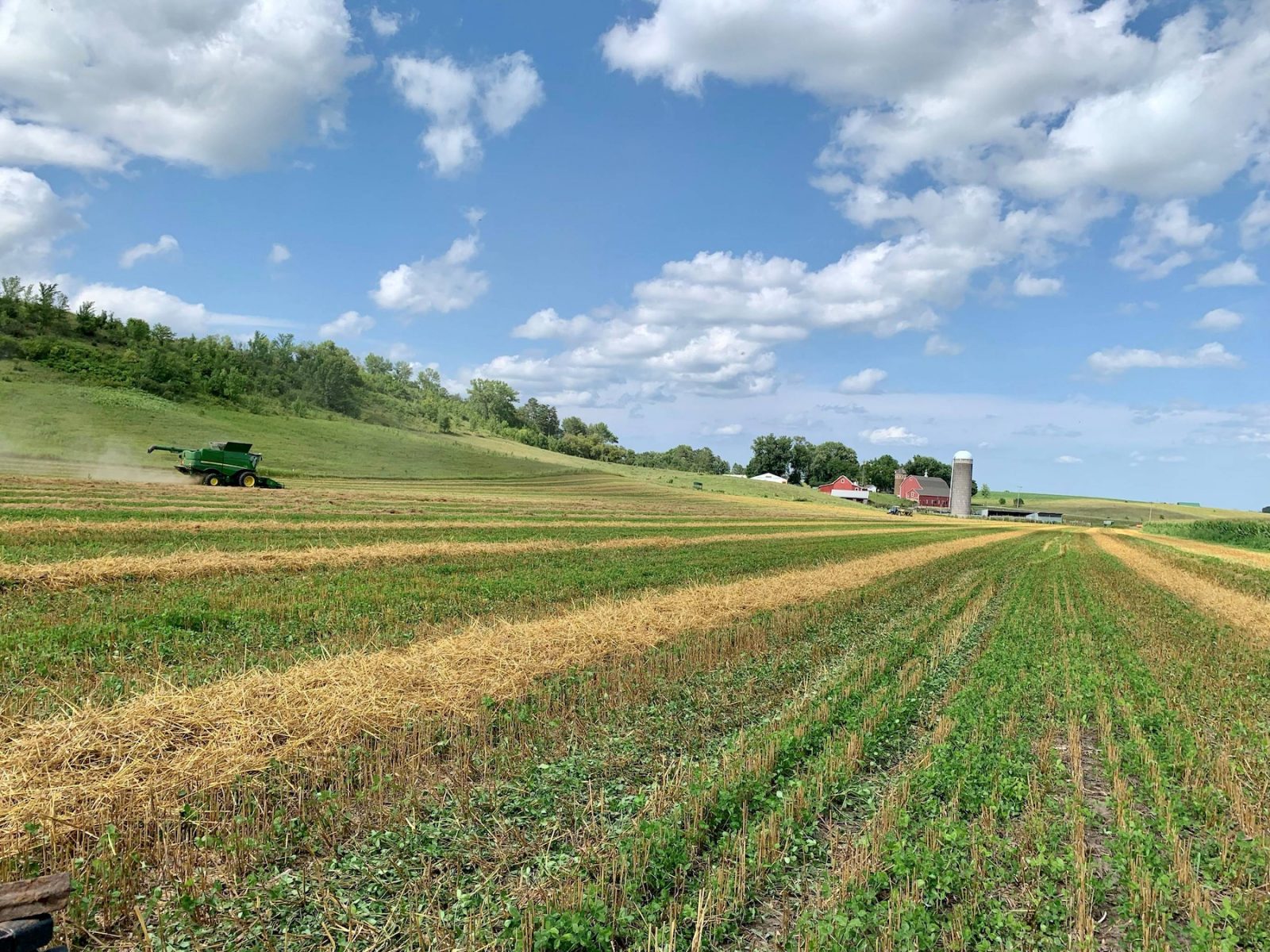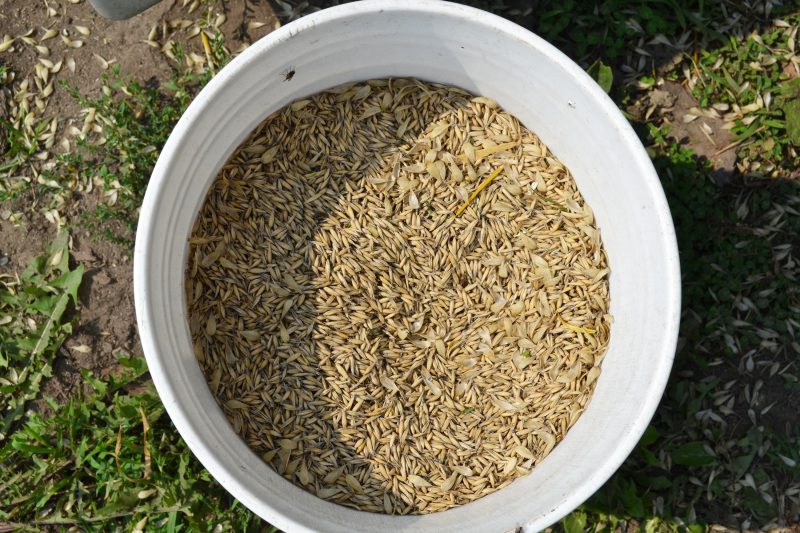In case you haven’t noticed, the humble oat is having a bit of a moment. After decades of declines in oat plantings in Minnesota, acreage increased this year. Market demand for the small grain is up, a group of farmers are attempting to pull together funding for a major processing plant in southern Minnesota, and research is showing that this crop can serve as a key linchpin in a rotation that builds healthy soil and protects water quality. Finally, myself and other southeastern Minnesota farmers who are organizing around cooperatively marketing the grain were recently featured prominently in the Star Tribune newspaper.
As a beginning farmer, Land Stewardship Project soil health organizer, and rural resident who cares about the economic and environmental health of my community, I’m thrilled to see this small grain getting some big attention. It’s become clear that if we are successful in making it a key part of our rotation, it could serve as a three-legged stool that supports economic, agronomic, and environmental sustainability. The oat isn’t the GOAT, but it does have some pretty cool superpowers.

For example, on my farm I recently interseeded oats with clover — oats serve as an excellent protective “nurse crop” for forages while they’re getting started. I harvested the oats for the grain and the straw, and started rotationally grazing my beef herd on the forage a month later. This saved me two months of feeding hay, which resulted in a roughly $1,500 reduction in my feed bill for my herd of nine cattle. That’s a major boost for a beginning farmer who is trying to figure out how to integrate livestock back onto the land in a practical, economically viable manner. To top it off, because of the high feed value provided by the forage, I had to call the butcher and move up the slaughter date by six weeks. By the way, my customers said that was the best beef they’d ever had.
There are other economic benefits to diversifying the rotation with a crop like oats. When paired with a legume like clover, oats create a field environment where nitrogen can be fixed naturally. In fact, studies show that integrating small grains like oats into a rotation can boost corn and soybean yields by 5%, adding $30 per acre in farmer income. In addition, when integrated with legumes, oats can result in a $15 per acre savings as a result of reduced fertilizer costs. That’s important at a time when commercial fertilizer prices remain stubbornly high.
And it turns out less of a reliance on purchased nitrogen fertilizer means less nitrate pollution in our groundwater, a key issue here in southeastern Minnesota. Adding a single small grain like oats to a rotation can have a significantly positive impact on our air and climate, according to research conducted by the University of Minnesota and Iowa State University. That study found more diverse rotations used 56% less fossil fuels, generated 54% fewer greenhouse gas emissions, and had monetized damages from greenhouse gas emissions and air pollutants that were 42% lower than the conventional corn-soybean system.
The other farmers I work with through LSP’s Soil Builders’ Network have found that oats can play a key role in building soil health profitably. Oats provide cover for the soil and fibrous living roots beneath the surface at a time when row crops like corn and soybeans are just getting their growing season started. The beauty of oats is that, unlike some experimental “third crops” out there, they have a long history on Midwestern farms — oats have been grown on our farm for six generations, for example. Growing this grain does not require a major shift in equipment or handling and storage facilities. And oats can play a complementary role in our existing corn-soybean rotation.
What I’ve found is growing a crop like oats may not produce profitable returns immediately (like corn and soybeans can in good years), but it creates a good investment in the soil and my bank account over several growing seasons. That’s key to long-term resiliency when volatile price swings plague mainstream commodity crops like corn and soybeans.

There are big picture economic benefits to increasing the presence of oats here in Minnesota as well. With a growing consumer trend toward healthy, sustainable foods, oats present a prime opportunity to build a resilient, locally driven supply chain for an in-demand product. Oat sales climbed almost 45% during the 2022 growing season, according to one market research analysis. The $5.16 billion market for oats in the U.S. is projected to have a 7.8% mean annual growth rate between now and 2030.
So what can be done to get more oats growing on more Minnesota farms? For one, farmers like me need to be guaranteed a consistently profitable market if we are expected to take the risk of growing this crop. Two out of the top 10 companies with the largest oat market shares are based in Minnesota. Ironically, those companies, General Mills and Grain Millers, source most of their oats from Canada; in fact, the U.S. is the biggest importer of oats in the world. What if our homegrown companies bought more homegrown product?
The potential for rural Minnesota is huge. Consider this: farmers who are proposing a processing facility in Albert Lea that could handle 30,000 acres of oats annually estimate that each oat-producing acre would use 50 pounds less purchased nitrogen per year. Now what if we expanded this environmental (and economic) opportunity by having additional oat processing facilities located in other parts of Minnesota? One estimate is that three oat processing facilities would support 500 small to mid-sized farms through the addition of a profitable third crop while creating dozens of new jobs.
Are oats some sort of magical silver bullet? No, but they do represent one commonsense approach to diversifying our landscape while building economic, agronomic, and environmental resiliency. Let’s take advantage of oats’ moment in the sun while we have the chance.
LSP soil health organizer Shea-Lynn Ramthun is a Farm Beginnings graduate and raises crops and livestock in Minnesota’s Goodhue County.